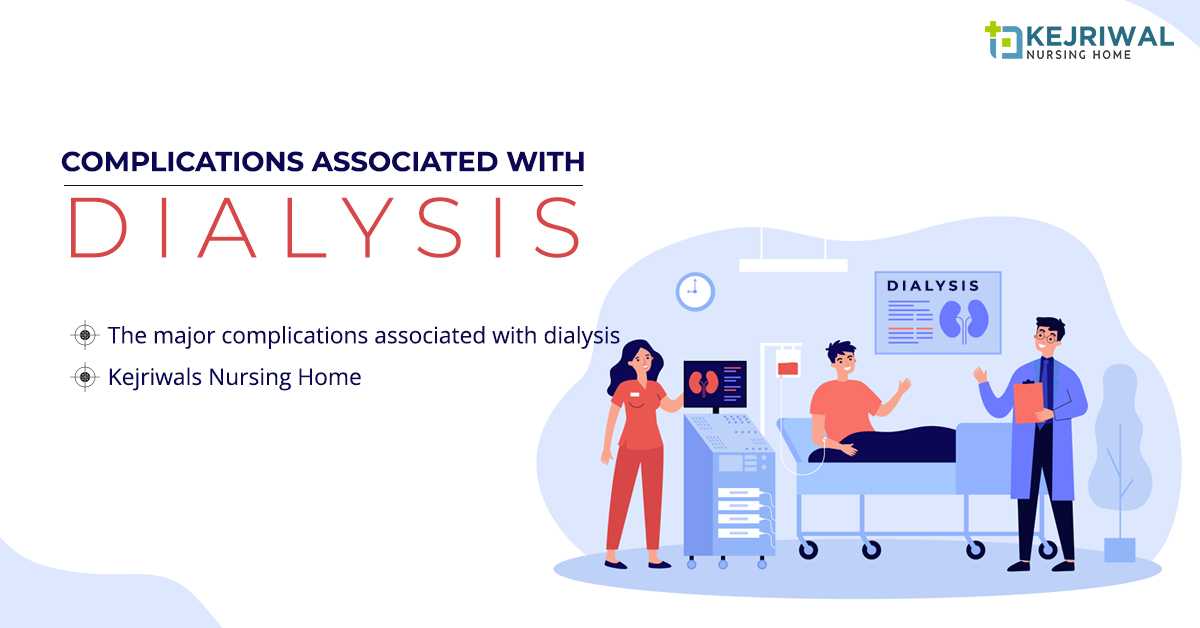Dialysis or commonly called hemodialysis in medical terms is widely used in treating a patient whose kidneys have completely lost the process of filtration of fluid in the body. This process is widely used in various hospitals to save the patient from other grave diseases associated with kidney failure. Doctors from the dialysis center in Siliguri always encourage patients to come forward even at the slightest indication of kidney failure so that necessary steps can be taken at the earliest.
This article provides you with all the essential information that you must know regarding the various complications associated with it just to create a little awareness among the readers. This article also provides a short description of one of the finest dialysis centres in Siliguri.
Table of Content:
1. The major complications associated with dialysis
2. Kejriwals Nursing Home
3. Conclusion
The major complications associated with dialysis
There are numerous complications associated with dialysis that can cause hindrance in the treatment. Some of these include-
1. Hypotension
Hypotension or commonly called low blood pressure in general terms is a common phenomenon in the dialysis process. This is mainly caused when the process is done at a rapid pace due to which fluids from the blood are speedily moved to cause a major disruption in the internal pressure of the blood vessels. These complications can give rise to symptoms such as nausea, vomiting, muscle cramps to name a few. Doctors in order to counter this keep the fluid intake at optimum so there is no sudden drop in the pressure.
2. Absence of Electrolytes
It is a very peculiar case where even the electrolytes are also removed in the process along with excess fluids and toxins from the patient’s body. However, this condition can well be handled with the help of a healthy diet but if it is not on a consistent basis then it gives rise to severe conditions such as hypokalemia (low potassium in the blood).
3. Infection
Dialysis always brings the threat to the patient by exposing it to bacteria and other microbes to enter into the blood mainstream and cause havoc in the body’s complete immune system. It shows symptoms such as fever, swelling, pain to name a few. Two important antibiotics named Heparin and limb ischemia are used to deal with this situation.
4. Hypervolemia
Hypervolemia is a condition that occurs mainly due to errors in the calibration of the dialysis machine and causes fluid overload in the body. This can easily be countered by keeping a measure of fluid intake in the body.
Kejriwals Nursing Home
We are the best dialysis centre in Siliguri that is backed with modern facilities and experienced doctors. Our services are highly recommended by many people who came here with a complex condition and left with full recovery and a bright smile.
Conclusion
Complications are a part of any treatment but can be overcome with strict monitoring and overall care.




